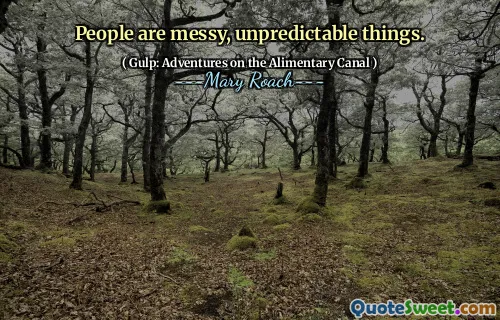Crispy foods carry a uniquely powerful appeal. I asked Chen what might lie behind this seemingly universal drive to crunch things in our mouths. I believe human being has a destructive nature in its genes, he answered. Human has a strange way of stress-release by punching, kicking, smashing, or other forms of destructive actions. Eating could be one of them. The action of teeth crushing food is a destructive process, and we receive pleasure from that, or become de-stressed.
Crispy foods possess a captivating allure that many people find irresistible. The author, Mary Roach, explores this phenomenon by interviewing Chen, who suggests that there is a deep-rooted, possibly genetic, reason for humans' attraction to crunchy foods. He theorizes that people have an innate destructive tendency, leading them to engage in actions like punching and smashing as a means of stress relief.
Chen posits that eating can function similarly, as the act of crunching food with our teeth mimics destructive behavior and provides a sense of satisfaction or relief from stress. This connection between the primal urge to destroy and the enjoyment of crispy foods highlights how deeply intertwined our instincts are with our eating habits. Thus, the enjoyment of crunching food can be seen as a coping mechanism for managing stress.






